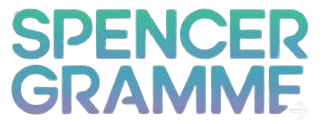Thanks for the Heads Up is a phrase we often use to show appreciation when someone gives us an early warning or important information. It’s a simple way to express gratitude. When someone says, “Thanks for the Heads Up,” they’re letting you know that the info you shared was helpful and timely. It’s a sign of respect and acknowledgment for the effort.
If you’re looking for thanks for the heads up synonym, you might say “thank you for the heads up” or “I appreciate the warning.” Another way to say thanks for the head up is “thank you for the heads up synonym.” These phrases convey the same gratitude. In the workplace, thanks for the heads up promotes clear communication and trust. When we show appreciation, it helps build positive relationships and teamwork.
Main Points
- Gratitude for timely updates strengthens professional relationships.
- Acknowledging information fosters effective communication and teamwork.
- Expressing thanks for insights promotes a culture of collaboration.
- Timely notifications help improve productivity and decision-making.
- Appreciation for alerts encourages proactive communication and mutual respect.
I Appreciate the Update
Receiving an update, especially when it’s timely and relevant, is vital to staying informed and making well-rounded decisions. Expressing appreciation for updates fosters a positive and transparent communication culture in any environment.
Saying “I appreciate the update” is more than just a polite phrase. It shows respect for the person who took the time to keep you informed, and it promotes effective information sharing. It also contributes to a smoother workflow.
This simple act of gratitude can go a long way in building strong, professional relationships. It reinforces a culture of open dialogue, where people feel motivated to keep others in the loop, ultimately improving collaboration and trust.
Grateful for the Insight

Insight provides valuable perspectives that help guide decision-making. Whether in a team or a one-on-one situation, being open to receiving insight is important for growth. It’s essential to express gratitude when someone shares their knowledge.
When you say, “Grateful for the insight,” it shows appreciation for the person’s expertise. It highlights that you value their opinions, which helps strengthen professional bonds and encourages a mutual respect for differing viewpoints.
Being grateful for insight fosters a collaborative environment. It opens doors for ongoing discussions and the exchange of ideas. This culture of respect encourages continued learning and helps refine strategies and decision-making processes for the benefit of everyone involved.
Thanks for Notifying Me
Receiving timely notifications is essential for maintaining productivity and making informed decisions. In the sphere of effective communication, acknowledging when someone takes the time to notify you is critical.
Saying “Thanks for notifying me” conveys appreciation for the effort invested in keeping you informed. This practice not only fosters positive relationships but also reinforces notification etiquette, which is significant in professional settings.
By expressing gratitude, you encourage a culture of open dialogue, where individuals feel valued for their contributions. This simple acknowledgment can lead to more proactive communication and ultimately enhance collaboration. Embracing this approach guarantees that everyone remains aligned, promoting a sense of freedom in sharing information and ideas for collective success.
Cheers for the Alert
Alerts often act as early warnings that prevent issues before they arise. Whether in the workplace or daily life, expressing gratitude for an alert can make all the difference.
Saying “Cheers for the alert” is a friendly yet respectful way to show appreciation. It acknowledges the importance of receiving timely information and fosters a more transparent, communicative environment. Such interactions contribute to smoother operations and fewer misunderstandings.
By thanking others for alerts, you promote a culture of proactive communication. People are more likely to share important updates and warnings, enhancing decision-making and collaboration. This creates a positive and supportive environment where everyone can stay on track and work efficiently.
Much Obliged for the Info
Saying “Much obliged for the info” is a courteous way to show gratitude for someone providing important details. It’s a great way to acknowledge that you appreciate the effort someone made to keep you informed. This phrase is commonly used in both formal and informal settings.
When you use “Much obliged for the info,” you convey sincerity in recognizing someone’s assistance. It fosters positive communication and encourages future exchanges of critical information. Acknowledging the value of the information shared improves relationship building and enhances overall teamwork.
Incorporating phrases like this, along with Thanks for the Heads Up, creates a culture of appreciation. It shows that you understand the importance of timely communication. Such expressions contribute to a supportive environment where information flows smoothly, leading to better decision-making and collaboration.
Related Guide:
11 Other Ways to Say “Glad to Hear That”
Thank You for the Tip
“Thank you for the tip” is another way to express gratitude when someone shares helpful advice or insights. This phrase highlights your appreciation for information that might help you in the future. It is both simple and effective in many situations.
Using “Thank you for the tip” also shows that you value the person’s knowledge and willingness to assist. This small acknowledgment can go a long way in fostering a supportive environment. It helps maintain positive communication between team members, friends, or colleagues.
When you express gratitude with phrases like “Thank you for the tip,” you contribute to building trust and respect. In professional environments, such expressions encourage transparency and team cohesion, ensuring everyone feels comfortable offering advice. It helps in creating an open dialogue, increasing productivity.
Many Thanks for the Warning
Saying “Many thanks for the warning” is a way to thank someone for giving you an early alert about a potential issue. It’s important to acknowledge when people help you avoid problems. This shows appreciation for their foresight and consideration.
When you use “Many thanks for the warning,” you create a positive feedback loop. It encourages more proactive communication in the future. By expressing gratitude, you demonstrate that you value the effort made to protect you from potential risks or surprises.
This phrase helps maintain a professional, open communication culture. By recognizing these efforts, you ensure the flow of critical information within teams. Just like saying Thanks for the Heads Up, it promotes a sense of preparedness and a collective mindset for handling challenges together.
I’m Glad You Mentioned That
“I’m glad you mentioned that” is a warm and appreciative response when someone brings up an important point. This phrase signifies that you are thankful for the information shared. It helps in maintaining a positive dialogue within a group.
Using “I’m glad you mentioned that” encourages more openness in communication. It shows that you value the input and expertise of the person who brought up the topic. This contributes to a collaborative environment, where everyone feels heard and respected.
Incorporating phrases like Thanks for the Head Up and “I’m glad you mentioned that” promotes a culture of mutual respect. This helps in boosting team engagement and establishing clear lines of communication. It also builds trust, as team members feel supported in sharing valuable insights.
Thanks for the Information
Acknowledging the value of information is essential in any setting. Saying “Thanks for the information” shows appreciation for someone taking the time to share valuable details.
When you express gratitude with “Thanks for the information,” you’re not only acknowledging the content but also the effort involved in communicating it. It fosters positive communication.
This practice of appreciation promotes a culture of effective communication, helping you stay aligned with others. By showing gratitude, you open the door for more thanks for the heads up moments and deeper collaboration.
Appreciate the Heads Up
Offering a heads-up is a way to keep others prepared and aware of upcoming situations. When you say “Appreciate the heads-up,” it shows that you value the early notice.
This phrase emphasizes the importance of timely alerts in professional environments. By acknowledging it, you create a space for open communication and transparency, key components of teamwork.
Incorporating such expressions into daily interactions leads to stronger relationships. People feel more inclined to continue providing valuable updates, helping everyone stay informed and aligned in their goals.
Thank You for the Reminder

Expressing gratitude for reminders helps maintain productivity and clarity. “Thank you for the reminder” is a simple, effective way to show appreciation for helpful nudges.
Reminders often keep us on track, ensuring we don’t forget critical tasks or details. Saying thank you for them encourages a proactive approach to communication and helps reduce miscommunication.
This practice strengthens teamwork, promoting a supportive environment where information is shared freely and tasks are completed efficiently. It’s a subtle yet effective way to show gratitude for the effort involved.
Thanks for the Notice
Receiving a notice helps us stay informed and prepared for what’s ahead. When you say “Thanks for the notice,” it’s a polite way to express appreciation for important updates.
Notices are an essential part of maintaining smooth operations in any setting. By thanking someone for their notice, you show that you value their effort to keep you in the loop.
Such expressions build trust and foster better communication, promoting a culture where everyone is mindful of sharing critical information. Thanks for the heads up moments contribute to a productive environment.
I Value Your Input
Valuing someone’s input is crucial in any collaborative environment. When someone shares their thoughts or insights, it’s important to acknowledge their contribution. A simple “I value your input” can strengthen relationships and foster trust. It shows you respect their perspective and are open to diverse viewpoints.
This phrase also helps create a culture of respect and active listening. When you say, “Thanks for the heads up” or “I value your input,” you’re not just acknowledging the information but the person providing it. It encourages ongoing conversations and an open exchange of ideas.
By consistently appreciating the input of others, you set a tone of mutual respect in both personal and professional settings. The more you show you value contributions, the more likely others will feel comfortable sharing, enhancing team collaboration and productivity.
This simple expression also promotes transparency. When people feel their input matters, they are more likely to communicate openly, leading to stronger connections and better decision-making.
Thanks for Keeping Me Informed
Effective communication is key to staying aligned with others, especially in fast paced environments. Saying “Thanks for keeping me informed” acknowledges the effort someone made to update you on important matters. It strengthens the flow of information and helps maintain a clear understanding of ongoing activities or changes.
When you express appreciation for being informed, you show that you understand the importance of staying up-to-date. This creates an atmosphere of proactive communication, where people feel encouraged to share important updates. It ensures everyone is on the same page and can make better, more informed decisions.
Regular communication also builds trust between individuals and teams. Acknowledging someone’s effort with phrases like “Thanks for the heads up” boosts morale and reinforces the importance of sharing information. It highlights that everyone’s contribution matters in achieving common goals.
Being well-informed also contributes to smoother operations and fewer misunderstandings. By thanking someone for keeping you informed, you motivate others to continue providing timely updates, creating an environment of shared knowledge and collaboration.
Your Alert Is Appreciated

Receiving an alert or notification in a timely manner can make a huge difference in avoiding problems. Saying “Your alert is appreciated” is a way to express gratitude for a quick heads up or warning. It shows you value their proactive approach in helping you stay aware of key situations.
Acknowledging alerts is especially important in professional environments where the flow of information impacts decision-making. A simple “Your alert is appreciated” promotes a culture of quick, responsive communication. It emphasizes the importance of staying alert to changes and adjusting accordingly.
This practice also boosts team cohesion. When people feel their efforts to alert others are valued, they are more likely to take initiative in the future. It reinforces accountability and ensures critical information is shared quickly and efficiently.
In the workplace, maintaining an environment where people appreciate each other’s contributions leads to better coordination and improved productivity. Thanks for the heads up or similar phrases encourage continuous alertness and responsiveness, essential for success in any organization.
FAQ’s
What does thanks for the heads up mean?
Thanks for the Heads Up means showing appreciation for receiving helpful information or a timely warning. It’s a polite way to acknowledge someone’s effort.
How do you professionally say thank you for the heads up?
A professional way to say thanks for the heads up is: “I appreciate the information” or “Thank you for bringing this to my attention.”
Is it professional to say heads up?
Yes, saying heads up is professional in many work settings. It’s a casual yet respectful way to alert someone or give them a warning.
What is a better way to say “heads up”?
Thanks for the Heads Up, you can say “advance notice” or “alert.” These alternatives convey the same meaning in a more formal tone.
How to use heads up?
You can use heads up to inform someone about something important. For example, “Just a heads up, the meeting is rescheduled for tomorrow.”
Conclusion
Thanks for the Heads Up is a great way to show appreciation when someone provides you with helpful information. It’s a simple phrase that communicates gratitude and respect. Whether you say “thank you for the heads up” or use a thanks for the heads up synonym, the message remains clear: you value the warning or notice. This small gesture can make a big difference in building strong, positive relationships.
There are also other ways to express the same idea. For example, you can say “thank you for the heads up synonym” or “I appreciate the heads up.” These phrases all mean the same thing. Knowing another way to say thanks for the heads up can help you keep communication fresh and polite. Thanks for the heads up encourages open communication and teamwork in any setting. It shows you care and helps improve the flow of information.

Ember Rose is a dedicated administrator with 4 years of experience in efficient operations management and team leadership. Skilled in streamlining workflows and enhancing productivity.

